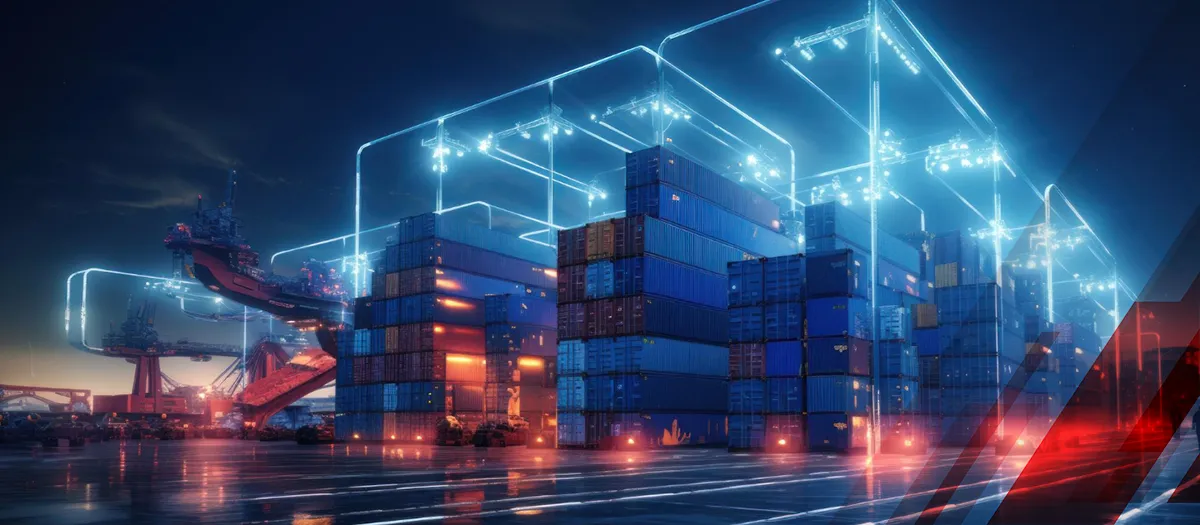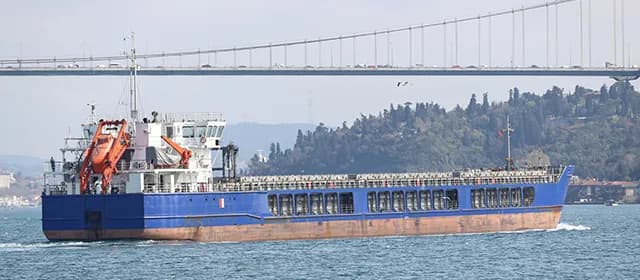Smart ports are transforming how global shipping works by using data, automation, and smart systems to make operations faster and cleaner. According to WIPO, the number of patent families for smart-port technology jumped from just 20 in 2016 to 102 in 2023, showing how much research is going into these systems. (Source: www.wipo.int)
Port efficiency is also under the spotlight: the World Bank’s Container Port Performance Index for 2023 covers 405 container ports, measuring how long ships stay in port, and points to the need for more investment in resilience and technology. (Source: www.worldbank.org)
With global trade still relying heavily on maritime routes, more ports are turning to digital tools, like IoT, AI, and data platforms, to boost efficiency, cut costs, and reduce environmental impact. According to Kings Research, the global smart port market will reach USD 38.80 million in 2031.
This blog highlights the top 10 key players driving the smart-port industry in 2026, and explains how their technologies, partnerships, and investments are shaping a more efficient, resilient, and sustainable global port network.
Top Companies Leading the Smart Port Market in 2026
1. Intel Corporation
Intel plays a crucial role in the smart port market by providing advanced computing and AI-driven solutions. The company’s edge computing, IoT connectivity, and AI-powered analytics help ports optimize real-time data processing, improve supply chain visibility, and enhance predictive maintenance. Intel’s high-performance processors support AI-driven automation, enabling smart ports to operate more efficiently and reduce downtime.
In Feb 2024, Intel partnered with AWS, Cisco, NTT DATA, Ericsson, and Nokia to roll out private 5G solutions worldwide. Powered by Intel technology, these networks enhance AI and edge computing, offering secure, high-performance connectivity. Industries such as manufacturing, healthcare, and ports benefit from improved scalability and accelerated digital transformation
2. Kaleris
Kaleris specializes in supply chain execution and visibility solutions, helping ports manage container tracking, yard operations, and cargo logistics. The company offers cloud-based platforms that streamline intermodal transportation, reduce dwell times, and enhance real-time monitoring of cargo movements. Kaleris’ software-driven solutions ensure ports maintain operational efficiency while improving the flow of goods across global supply chains.
In January 2024, Kaleris partnered with NorthPort to enhance their terminal operating system (TOS). This collaboration aims to improve efficiency and visibility within NorthPort’s operations, leveraging Kaleris' advanced software solutions. The partnership focuses on streamlining port operations, optimizing workflows, and enhancing data-driven decision-making capabilities.
3. Cisco Systems, Inc.
Cisco provides cutting-edge networking and cybersecurity solutions for the smart port market. The company’s IoT-based infrastructure supports smart port connectivity, enabling seamless communication between terminal operators, shipping companies, and logistics providers. Cisco’s network automation, cloud integration, and secure wireless solutions help ports enhance operational resilience and data-driven decision-making.
4. KONGSBERG Gruppen ASA
KONGSBERG is among the key companies in maritime digitalization, offering automation, vessel traffic management, and remote monitoring solutions for ports. The company’s smart port technologies include autonomous shipping systems, real-time data analytics, and digital twin solutions that optimize port operations. KONGSBERG’s expertise in maritime technology helps ports enhance efficiency and sustainability while reducing environmental impact.
In January 2025, KONGSBERG unified its digital maritime initiatives under Kongsberg Maritime to drive the industry's shift toward renewable fuels, decarbonization, and digitalization. This move enhances operational efficiency, optimizes energy use, and strengthens KONGSBERG’s role in the maritime sector’s green transition
5. Wipro
Wipro is one of the leading players in the smart port market that provides digital transformation services for smart ports, leveraging AI, blockchain, and IoT to improve logistics and port management. The company offers predictive maintenance solutions, real-time cargo tracking, and automation tools that enhance operational efficiency. Wipro’s cloud-based platforms integrate with existing port systems, enabling data-driven decision-making and seamless cargo movement.
6. ABB
ABB is a major company in automation and electrification solutions for the smart port market. The company offers shore-to-ship power solutions, automated crane systems, and smart grid technologies that improve energy efficiency and sustainability in port operations. ABB’s AI-driven predictive maintenance solutions help ports reduce downtime and optimize equipment performance, ensuring smooth cargo handling and vessel movements.
7. Trelleborg Marine and Infrastructure
Trelleborg specializes in marine infrastructure solutions that enhance port safety, efficiency, and sustainability. The company provides advanced mooring systems, fender solutions, and automated docking technologies that streamline vessel berthing. Trelleborg’s smart port solutions incorporate real-time data analytics to optimize ship-to-shore operations and improve port throughput.
8. Huawei Technologies Co., Ltd.
Huawei is a major contributor to the smart port market, offering 5G connectivity, IoT integration, and AI-powered automation. The company’s intelligent port solutions include smart surveillance, automated container handling, and real-time cargo tracking. Huawei’s digital infrastructure helps ports increase operational efficiency while enhancing security and predictive analytics.
In February 2024, at MWC Barcelona, Huawei unveiled its Intelligent Port Solution, designed to enhance operational efficiency and safety in port operations. This solution integrates advanced technologies such as 5G, AI, and cloud computing to enable real-time data processing and intelligent decision-making. By automating processes and improving communication systems, the Intelligent Port Solution aims to streamline logistics, reduce operational costs, and contribute to the sustainable development of modern ports.
9. IBM
IBM plays a key role in the smart port industry by offering AI-driven logistics, blockchain-based cargo tracking, and cloud computing solutions. The company’s Watson AI platform enables ports to analyze real-time operational data, optimize ship movements, and enhance supply chain transparency. IBM’s blockchain solutions improve cargo security and reduce delays by ensuring seamless data exchange between stakeholders.
10. Accenture
Accenture is among the leading players in the smart port market that provides digital transformation consulting for smart ports, helping them implement AI, big data analytics, and automation technologies. The company’s solutions focus on improving port efficiency, predictive maintenance, and sustainability. Accenture’s cloud-based platforms enable smart ports to leverage real-time data for better decision-making and streamlined logistics management.
Conclusion
Key players are helping the smart-port market grow by investing in automation, digital platforms, and data sharing. They support on-terminal automation and remote operations, and they build Port Community Systems and IoT data layers to speed cargo flows and cut delays.
Many participants also focus on interoperable standards, public–private partnerships, and sustainability measures (for example, cleaner energy and reduced idle time) so ports can handle rising trade with lower emissions and better resilience. These combined actions are driving steady, practical adoption of smart-port solutions worldwide.

.webp&w=3840&q=75&dpl=dpl_HkC6vhtovZ9gdp5f4CCyQszcdnYs)

